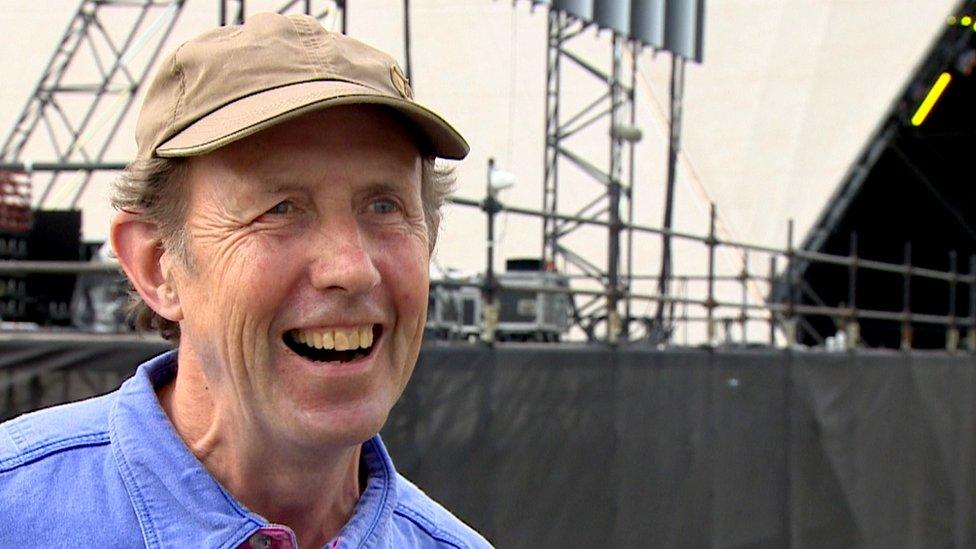How Ukraine left its mark on Glastonbury
- Published
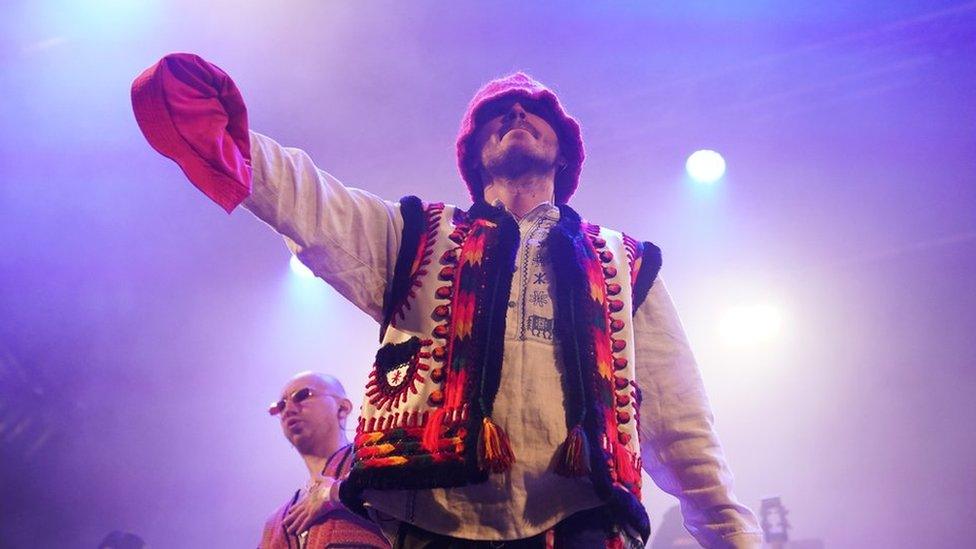
Eurovision winners Kalush Orchestra were among the Ukrainian bands who played the festival
Paul McCartney showed his solidarity with Ukraine by waving the country's flag during the encore of his epic Glastonbury set on Saturday night.
The Beatles legend earned a huge cheer as he stood under the flag's blue and yellow stripes, but for Ukrainian musicians at the festival, it was more than just a gesture.
"For soldiers, for people in Ukraine and around the world, when your big stars support you and understand you, it shows you have truth on your side," says Marko Galanevych of the folk quartet DhakaBrakha.
"It gives us inspiration to stand."
Ukrainian Eurovision winners, Kalush Orchestra, also praised the star for his support.
"A lot of people follow and listen to their idols, so superstars like him expressing their support for Ukraine really helps us to promote our cause," says frontman Olek Psiuk.
Both bands performed at the festival this weekend, helping spread their message of resistance - and hopefully winning new fans along the way.
Kalush Orchestra were up first, playing an early-morning set on Shangri-La's Truth Stage on Friday, attracting an audience of about 3,000 people with their intoxicating mix of Ukrainian folk and hip-hop.
They played their Eurovision-winning track Stephania twice due to popular demand, and even managed to engage the audience in a call-and-response singalong, despite the language barrier.
"Who doesn't know the Ukrainian language? Oh dear…" joked Psiuk from the stage.
The rapper says it is "important" for Kalush to be at Glastonbury "to show how we make music in Ukraine and to gain more fans" - but the war effort is never far from their minds.
During their show, they placed a tip jar on the stage so that fans could donate money to the cause. Just weeks ago, they auctioned off their Eurovision trophy for the same reason.
"We got about $900,000 for it," Psiuk tells the BBC, "and all of this goes to support Ukrainian soldiers and the people who have been displaced inside Ukraine."
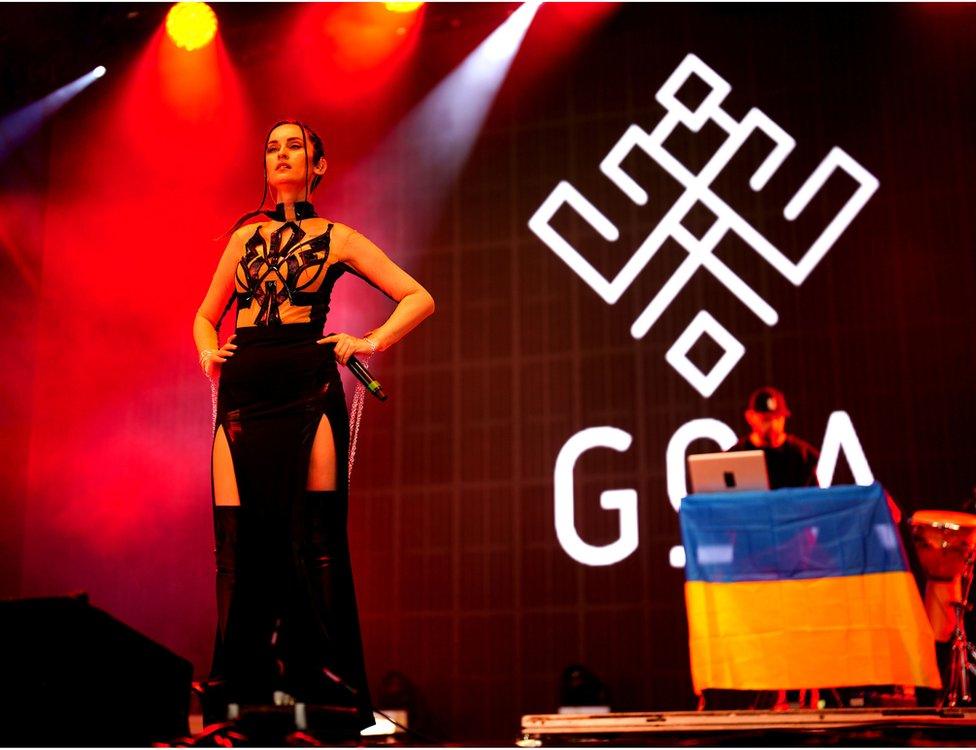
Go_A drew a huge audience to the John Peel stage
Over at the John Peel stage, electro-folk band Go_A also helped inform fans of the threat posed by the Russian invasion, by leading them in a traditional religious ritual called a Horovod, where the faithful join hands and dance around a fire in a circle.
"It's a very important moment in our performance," says songwriter and frontwoman Kateryna Pavlenko.
"We show people this ritual because we need them to understand Ukraine is a unique country with a unique culture, and is not a part of Russia.
"We're different. We have different values. We need to connect people."
"It's not a political message, it's a cultural message," adds founder member Taras Shevchenko.
"Right now, Russians are not just invading our cities, they are destroying our culture. We need to save it and we need to show it to the world."
His words echo those of Ukrainian president Volodomyr Zelensky, who delivered a pre-recorded message to festival-goers before rock band The Libertines played The Other Stage on Friday morning.
"Russia has stolen our peace," said the president, wearing his trademark military fatigues.
"Glastonbury is the greatest concentration of freedom these days and I ask you to share this feeling with everyone whose freedom is under attack.
"The more people join us in defending freedom and truth, the sooner Russia's war against Ukraine will end," he added. "Prove that freedom always wins."
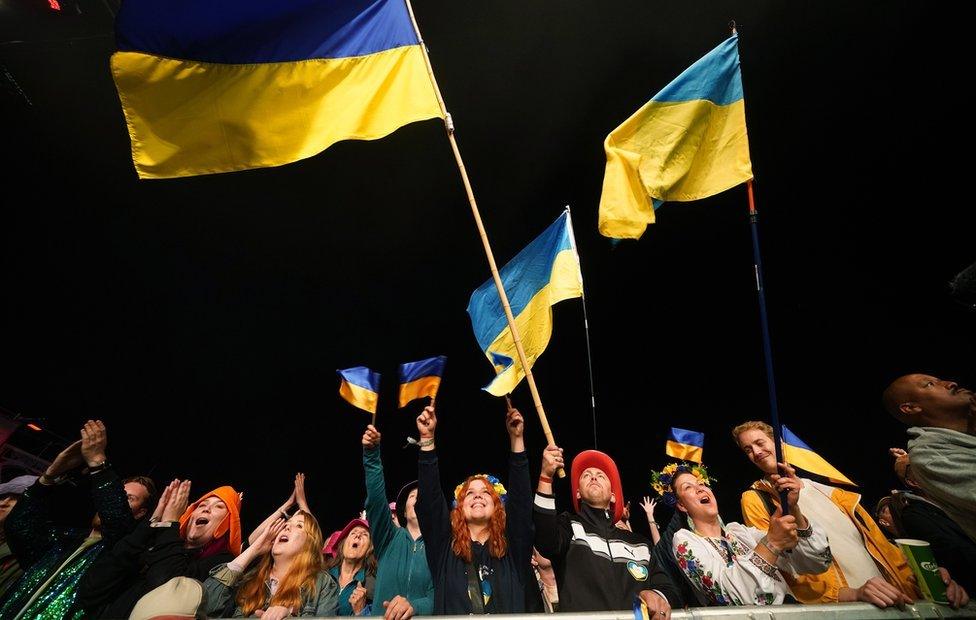
The Ukrainian flag was visible around the festival
That message was ringing in Galanevych's ears when DhakaBrakha brought their blend of traditional Ukrainian melodies and African rhythms to the Pyramid Stage on Sunday.
The war is "not only about our territory and our culture, he tells the BBC, "it's about democracy, all across Europe".
"Our enemy just proclaims that there is no Ukrainian people, no Ukrainian culture, no Ukrainian language. We were a colony more than 200 years," adds the musician.
Speaking after a night of deadly missile attacks on his home city of Kyiv, Galanevych admits it is hard to enjoy playing music while thinking about the situation at home.
"You have this duality all the time, these conflicting emotions.
"But we are musicians, and we understand that it's our way of struggling, of showing people we need your support."
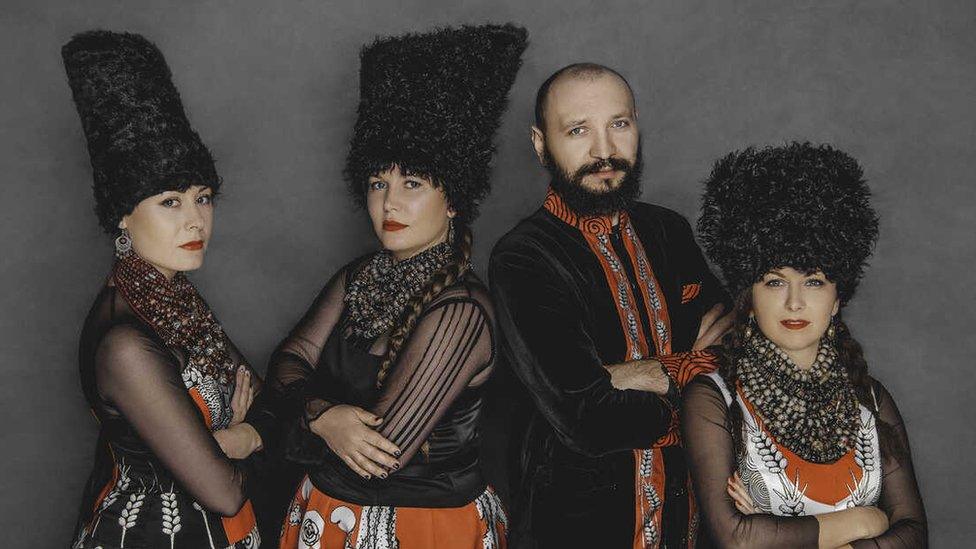
DhakaBrakha are one of Ukraine's most well-respected bands
DhakaBrakha drove their message home by showing footage of the devastation caused by Russia's war during their set on the Pyramid Stage. As the performance drew to a close, the words "Arm Ukraine now" were beamed across the stage.
Galanevych says the message grows more urgent with every passing day.
"The whole world has been impressed with the Ukrainian people. They say we are heroes of resistance, but we don't have any choice because if we don't stand up, we will be destroyed.
"We need to stand and we need to win."

More from Glastonbury

Follow us on Facebook, external, or on Twitter @BBCNewsEnts, external. If you have a story suggestion email entertainment.news@bbc.co.uk, external.
- Published26 June 2022
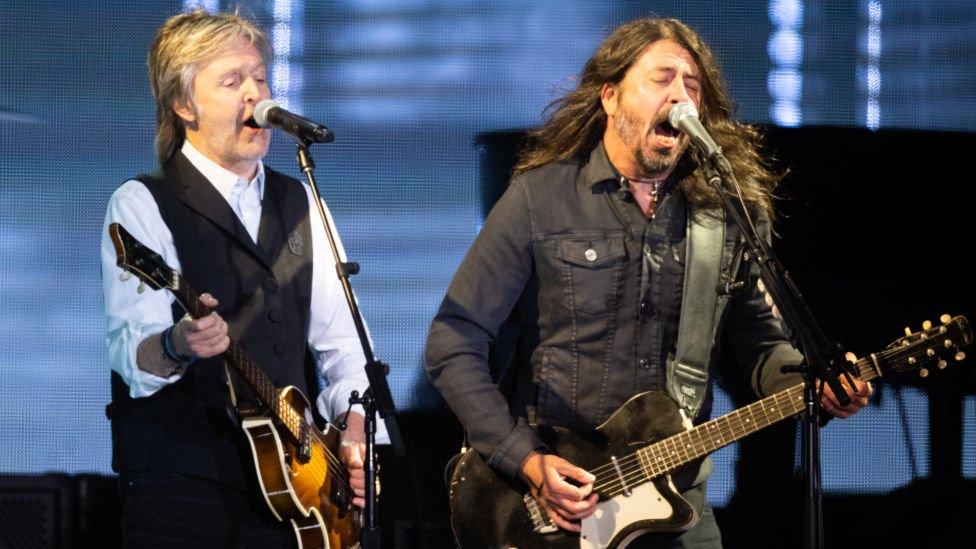
- Published25 June 2022
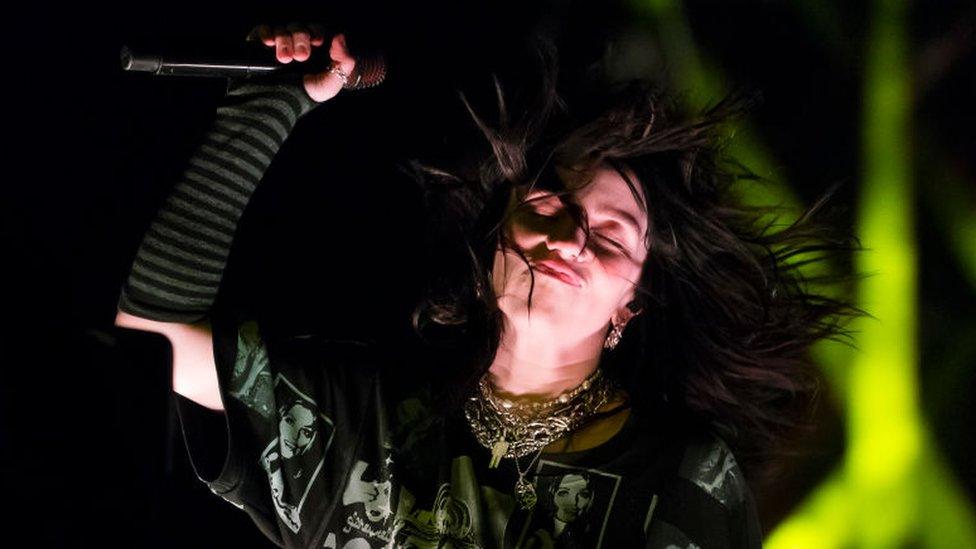
- Published24 June 2022
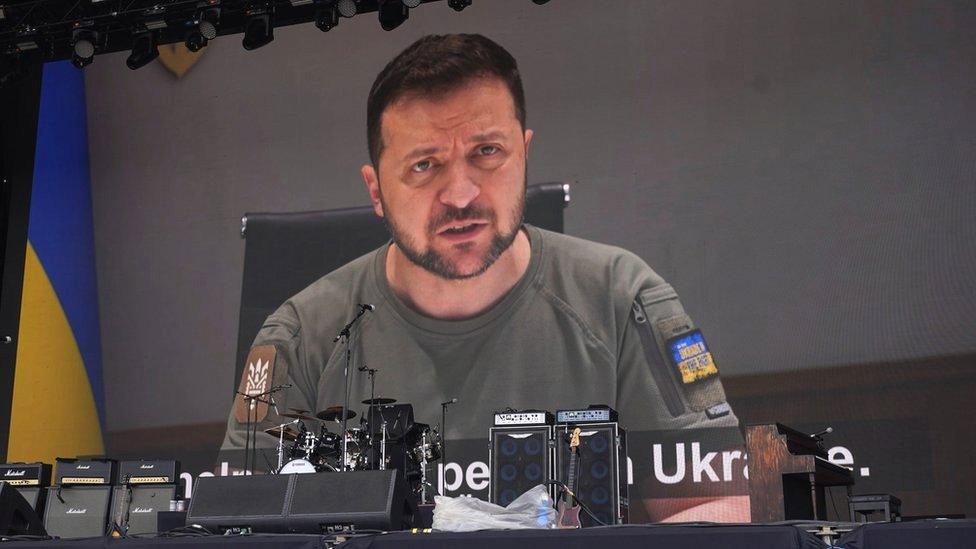
- Published23 June 2022
